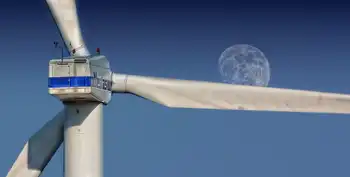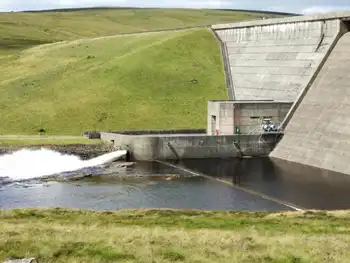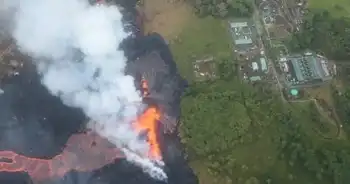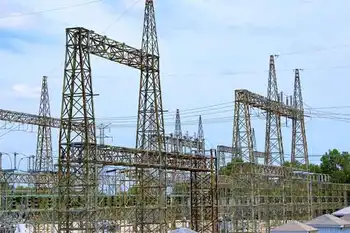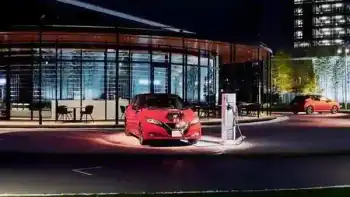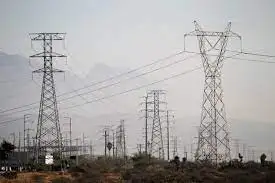'Forgotten' lake shows South's stubborn drought
By Associated Press
Electrical Testing & Commissioning of Power Systems
Our customized live online or in‑person group training can be delivered to your staff at your location.

- Live Online
- 12 hours Instructor-led
- Group Training Available
It's a depressing reminder of the toll from a stubborn Southern drought that only recently began to abate with replenishing rains this fall. Much of the region has recovered, but a ring stretching from northeast Georgia to the western Carolinas remains stuck in "extreme" drought.
And Hartwell, a massive 56,000-acre lake straddling Georgia-South Carolina state line, is near the epicenter. Even after a spate of recent downpours, its water line is nearly 18 feet below normal levels.
"We never thought we'd see it. We never thought the lake would go this far down," said Jane Davis, who built the marina from the ground up with her husband. "Everyone needs water, but Hartwell has finally given more water than it can take."
Forecasters say there's no telling when it will end.
"When you start looking at an area like that that's been under duress so long, even one or two rain events aren't going to completely wipe away the long-term problems," said Brian Fuchs, a climatologist with the National Drought Mitigation Center.
Hartwell has for decades been a source of water, recreation and electricity for scores of towns and thousands of residents on both sides of its ever-growing banks.
Now moldy boat shells, aging beer cans and even long-lost highways once deep underwater bake in the sun. Jagged islands once topped with buoys to ward off unsuspecting boats now sit uncomfortably 8 feet above water.
Some residents blame the U.S. Army Corps of Engineers, which sends millions of gallons of water from the lake each week downstream to the Savannah River to help supply Savannah, Augusta and other cities.
They also worry that the Corps and another federal agency, the Southeastern Power Administration, focus too much on generating electricity and too little on keeping the lake full.
"You're going to have to put lake levels on the priority list," said Mike Gray, a real estate broker in nearby Anderson, S.C., who has a growing list of unsold homes on the lake's banks.
The Corps, which has reduced water releases from Hartwell by 15 percent this month, said producing electricity is an "incidental" byproduct of sending water downstream.
Corps spokesman Billy Birdwell said the agency was following federal guidelines designed to meet the competing demands.
"This lake is not forgotten," said Birdwell. "We're watching the levels constantly. We're trying to meet the different demands. There are needs upstream, there are needs downstream. And right now, water supply and quality is taking the highest precedence."
Engineers for SEPA, which markets the energy produced by Hartwell and other nearby lakes, say it is also following its federal mandate.
"We're not driving the generation, we're just the front man," said Douglas Spencer, a SEPA hydrologist. "We're just responsible for marketing the generation."
Others say Hartwell's plight has been overlooked while water sources like north Georgia's Lake Lanier have earned more attention because of they are near Atlanta.
"There's a feeling that the lake has been forgotten, in part because it's not near a major metropolitan center and in part because it's divided by two states with varied interests," said Juan Brown, a retired physician who lives in nearby Anderson, S.C.
"It's a negative cloud that's been over us all through these droughts, and this is particularly bad because of the economy," Gray said. "People are depressed, and they are beginning to lose hope that it's going to come back."
Meanwhile, Davis' marina is slowly vanishing. The number of occupied boat slips has dropped about 80 percent, and Davis is warning the rest of her customers to get out while they can. The lake, she fears, will ultimately fall to 35 feet below normal levels.
"A lot of my customers just don't want to come to the lake anymore," she sighs, her voice trembling. "We're going to be a land-based marina very soon. And that's disastrous. Our marina is in crisis."
As she spoke, the skies opened up, and a light but steady rain began to soak the marina. But to Davis, it seemed like a cruel joke: "It's not enough."





